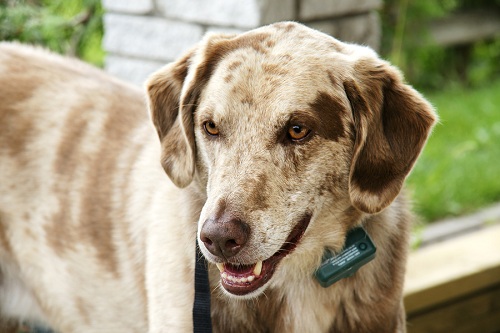7 Easy Steps Show You “How to Stop Dog Barking”

Dogs bark for a number of reasons, so it is important that you take the time to figure out why your dog is barking. Some dogs bark to gain attention, some out of boredom, some bark at birds or people, and some bark because they are anxious or stressed. A dog that barks because of anxiety will need a different strategy to a dog that barks because out of boredom
More...
One way that you can train a dog to bark less is to use a bark collar. These are effective in many cases, but there other options too. In some cases, more exercise, stimulation, and more company can be all it takes it stop your dog barking excessively
Most of the training techniques that will help to control a dog’s barking will need you to understand the underlying causes of the excessive barking. Here are a few important tips to bear in mind when you are training your dog not to bark: See our recommend dog training collars
1. Behavior Therapy:

If you have a problem with a dog that barks too much, the first thing to do will be to schedule an appointment with a veterinarian. Many vets have skills in dog behavioural techniques or they have a personal interest in this field. Also, you could find that health issues, such as dementia or hearing and vision problems, are exacerbating the barking problem
2. Bark Collar:

The SportDOG Brand NoBark 10R Rechargeable Bark Collar grabs the top position in terms of effectiveness
Probably the most suggested solutions on how to stop dog barking are the usage of electronic collars plus citronella collars. The basic idea of collars is viewed as hurting the indigent animal. The less recommended choice is “debarking” surgery. when they are used properly, they are a safe, humane, and effective way to reinforce the training.
3. Remove the Incentive:
There is always a reason why a dog barks. If you can work out what is causing your dog bark and what he is getting out of doing it, you can remove that incentive and stop your dog barking.
4. Ignore the Barking:
If your dog is barking to gain your attention, the best way to train him not to, is to not respond to the barking at all. If your dog gets no response to his bark, he will soon learn that barking is pointless. Don’t even acknowledge that he has barked. Don’t speak to your dog, don’t make any contact with your dog, and don’t even look at him. When your dog does stop barking, then you can reward him with a treat and some attention. You will need a bit of patience for this method to work, but it will work in the end
5. Teach your Dog the “Quiet” Command:
Once your dog may reliably bark on control, train your dog the “quiet” control. In a calm atmosphere with no distractions, simply tell him to “talk.” When this individual starts barking, state “Quiet” inch and stick a delicacy before his nasal area. Compliment him to be quiet and present your dog the treat.
6. Provide Your Dog more Exercise:

The easiest way to stop a dog barking out of boredom is to give it more exercise. While regularly walking your dog will give it some exercise, it might not be enough. Try playing with your dog in open spaces and, perhaps, have it running back and forth between two people. Get your dog to chase a ball or a toy, or take your dog with you when go out running. The more exercise a dog gets, the more content he will be and that will help make him bark less
7. Consult a Specialist:
There are various types of dog behavioural specialists, each with their own unique specialities and skills. Regardless of what kind of professional you select, it is best to examine the individual‘s qualifications and to check out recommendations online before you hire them. If you cannot find an expert on the internet, ask your vet for advice about an expert who may be able to help you with your dog
There are many ways of dealing with a dog that barks excessively, but the real secret to teaching your dog not bark is patience and kindness. Reward good behaviour with treats and affection and be consistent with your reprimands for bad behaviours. That way you will be able to teach your dog the rules of your house, one step at a time
